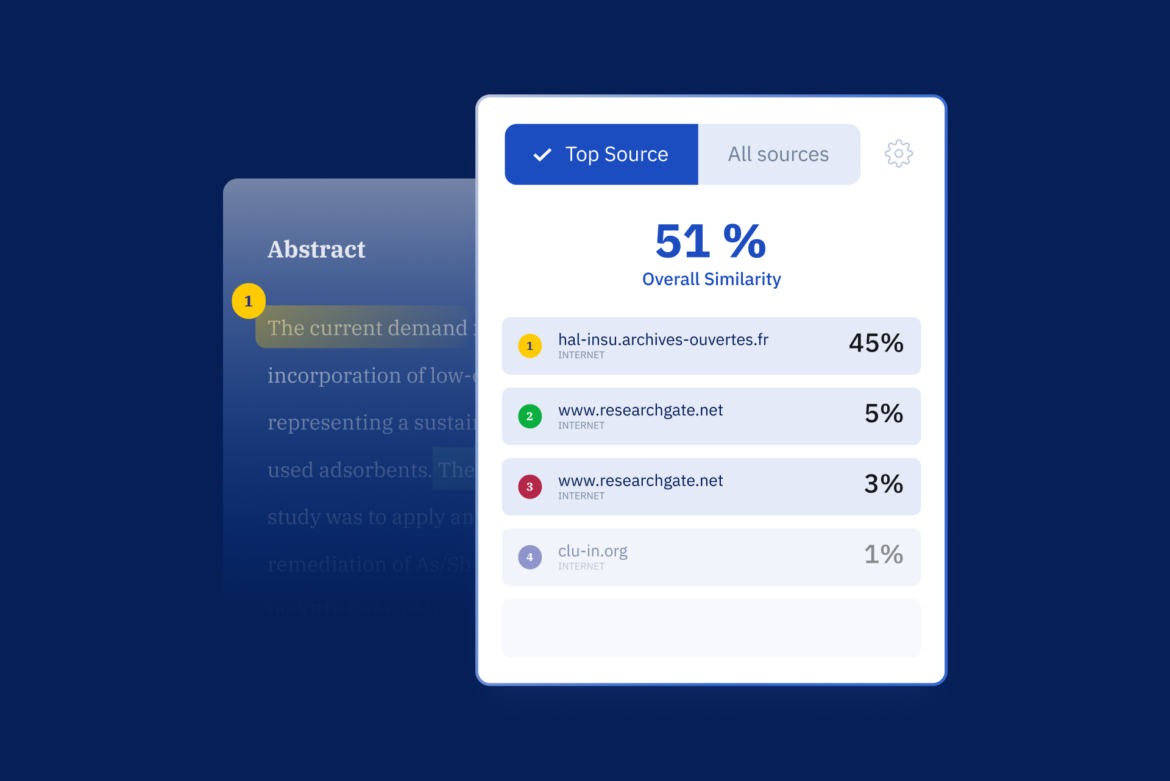Initially conceived as a paraphrasing tool, QuillBot has evolved significantly. With the continuous incorporation of features such as grammar and plagiarism checks, a word processor, translation capabilities, and citation support, QuillBot has become one of the most widely utilized tools by students for academic writing today with over 4.3 million …
News & Updates
Plagiarism prevention may not be top of mind for students and researchers who produce their original ideas and writing. In fact, some may dare to ask what’s the brouhaha about plagiarism checks anyway? So let’s explain this simply. Say you build a tower out of wooden blocks. Each block has …
Plagiarism, while often unintentional and accidental, is considered a serious ethical misstep, one that can undermine the credibility of research outcomes, harm your reputation, and erode academic integrity. With the use of standard expressions in academic writing, and the fact that research often emerges from the gaps in published literature, …
CACTUS Joins Hands with Taylor & Francis to Simplify Editorial Process with a Pioneering AI Solution
Cactus Communications (CACTUS), a science communication and technology company, announced a partnership with Taylor & Francis, a leading academic publisher, aimed at revolutionizing journal editorial workflows through its Paperpal Preflight for Editorial Desk solution. Paperpal Preflight for Editorial Desk is a robust hybrid (AI + human) post-submission manuscript check tool …
The integration of artificial intelligence (AI) tools into the academic writing process has sparked numerous debates, particularly around the ethical considerations of plagiarism and AI detection. The interest in this topic was evident in the engagement and enthusiasm we saw in our recent webinar on the ethical use of AI …
When translating your ideas into written text, it can be easy to miss typos or spelling errors – this is why using an online spell checker is critical. Such avoidable mistakes can distract from the essence of your work and even indicate a lack of effort. Instead of spending hours …
Research writing is a challenging task that requires a lot of time, effort, and creativity. You need to find relevant sources, synthesize information, organize your ideas, and present them in a clear and convincing way based on recommended research paper templates. But what if you could speed up your research …
Generative AI tools have emerged as a powerful ally for researchers and students around the world. But the academic community embraces AI for their academic writing needs, it becomes imperative to understand not just the capabilities of these generative AI tools but also the ethical considerations that should guide their …
Paperpal has just crossed the remarkable milestone of 500,000 users globally, and we couldn’t be happier. We want to celebrate this achievement with you, so this Thanksgiving, we’re presenting you with a special gift that you will value and love. We invite you to refer Paperpal to your friends and …
Around the time we introduced Paperpal to the world last year, ChatGPT launched with a splash and quickly went viral. By May 2023, interest levels escalated and many of our academic users were typing academic writing “prompts” into every available text box on the Paperpal platform. Fortunately, our sister brand …












